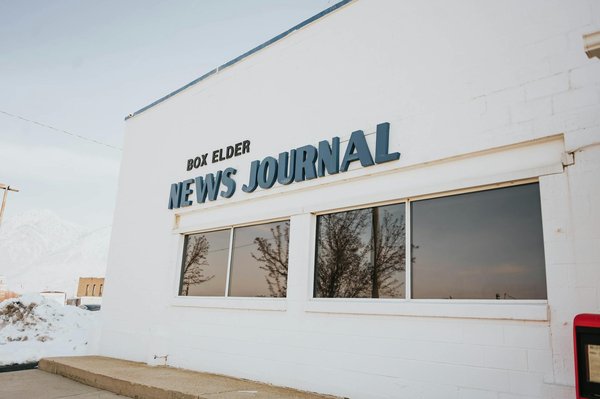Discover Our Categories
In-depth content covering every aspect of modern life
Automotive
Cars, vehicles and driving
Business
Business and economy
Cooking
Recipes and culinary arts
Finance & real estate
Finance, investment and property
Health
Health, wellness and wellbeing
Home & living
Home, decor and lifestyle
News
Latest news and current events
Pets
Pets, animals and companions
Sports
Sports, fitness and competition
Technology
Tech, gadgets and innovation
Woman / fashion
Fashion, beauty and lifestyle
What Our Readers Say
Join thousands who trust Mfmag for reliable information
« I check Mfmag every morning with my coffee. The automotive articles are thorough and the cooking guides have transformed my meal planning. It's become my go-to resource for everything. »
« The finance and real estate section helped me understand complex topics in simple terms. I appreciate how the writers break down trends without overwhelming jargon. »
« From health tips to technology reviews, Mfmag covers it all. The quality is consistent across every category, and I always learn something new. »
Latest articles
Our recent publications

How Are Electric Cars Impacting the Future of the UK's Automotive Industry?
The Electric Vehicle Market in the UK is experiencing substantial growth, marking a significant shift within the UK Auto...

What Are the Environmental Benefits of Choosing Electric Vehicles Over Traditional Cars?
Electric vehicles (EVs) are increasingly recognized as a sustainable alternative to traditional cars. EVs are powered by...

What are the opportunities for growth in the UK's automotive exports?
Understanding the latest UK automotive export trends requires close examination of recent export statistics and market a...

How can UK businesses capitalize on digital marketing trends?
Understanding digital marketing trends UK is crucial for businesses aiming to thrive in 2024. One significant trend is t...

The Impact of Brexit on UK Businesses: What Changes Have Already Taken Effect?
Brexit regulatory changes have introduced substantial updates to UK business law, significantly altering compliance fram...

What Are the Unique Challenges Faced by UK Startups?
Navigating UK startup regulations presents a formidable challenge for new businesses. Startups must address a maze of le...

How Can British Cuisine Inspire Modern Culinary Trends?
British cuisine influence has seen a remarkable revival as modern food trends embrace the richness of traditional fare w...

What are the secrets to crafting a perfect English scone?
Creating perfect English scones relies heavily on cold ingredients and careful mixing. Cold butter, ideally cubed and ch...

What Are the Traditional British Dishes That Define UK Cuisine?
Traditional British dishes such as fish and chips, roast beef with Yorkshire pudding, and shepherd's pie not only stand ...

How Can Real Estate Investment Help Secure Financial Stability in the UK?
Real estate investment in the UK offers numerous advantages for those seeking financial stability and long-term growth. ...

How Does the UK Real Estate Market Impact Financial Investment Decisions?
Understanding UK real estate investment trends is crucial for making informed financial investment decisions. Recently, ...

How is technology transforming property management in the UK real estate market?
In recent years, technology in property management has transformed the UK real estate landscape, introducing innovative ...

How Can Innovative Approaches Revolutionize Healthcare in the UK?
Innovative healthcare approaches UK are driving a profound healthcare transformation across the UK, particularly within ...

What Are the Latest Developments in UK Health Initiatives?
Recent UK health initiatives emphasize enhancing public well-being through coordinated government health campaigns and u...

What Are the Most Overlooked Aspects of Maintaining a Healthy Lifestyle in the UK?
Small daily habits often go unnoticed yet greatly influence maintaining health in the UK. One critical but overlooked he...

How Can UK Residents Transform Their Living Spaces into Eco-Friendly Havens?
Creating an eco-friendly home starts with prioritising actions that deliver the greatest local impact. In the UK, focusi...

How Can We Transform Our Living Spaces to Reduce Stress?
Small changes in your living space can make a big difference in stress reduction at home. Start with immediate declutter...

How Can You Transform Your Living Space into a Multi-Functional Area?
Creating a multi-functional living space begins with a clear understanding of your lifestyle and primary needs. The firs...

How Does Recent Legislation Impact the UK Economy?
Understanding the framework shaping today's economic landscape...

How does UK news influence public policy decisions?
The UK news media wields significant power in shaping public opinion through various mechanisms, beginning with agenda-s...

How is the UK government tackling internet safety concerns?
The Online Safety Bill represents the cornerstone of the UK government's approach to internet safety law. Its primary ob...

How can you travel with your pet across the UK safely?
Preparing your pet for travel in the UK involves careful planning to ensure a smooth, safe journey. Key pet travel prepa...

How Do Pets Affect British Families' Daily Routines?
Pets significantly reshape daily schedules within British households, requiring adjustments to both morning and evening ...

How Do UK Pet Owners Choose the Perfect Pet Name?
Exploring UK pet naming trends reveals a dynamic blend of tradition and modern inspiration. Recent statistical data show...

How do UK sports policies affect international collaborations?
UK sports policies play a pivotal role in shaping international sports collaborations. Primarily, these policies aim to ...

How does UK sports sponsorship affect brand visibility and engagement?
Understanding how UK sports sponsorship influences brand recognition is essential for businesses targeting wider audienc...

What Are the Most Memorable Moments in Recent UK Sports History?
Delving into the moments that defined UK football's rich tapestry...

How Can the UK Keep Up with Rapid Technological Advancements?
Balancing UK technological challenges with the rapid pace of global innovation remains a critical issue. Central to thes...

How Will Emerging Technologies Shape the Future of UK Education?
The UK education transformation is at a pivotal moment, driven by rapid shifts in both societal needs and technological ...

What are the benefits of digital transformation for UK industries?
Digital transformation benefits UK sectors by significantly boosting efficiency and opening new avenues for growth. Indu...
Start Exploring Today
Dive into hundreds of articles crafted to inform and inspire. Whether you're passionate about sports, curious about technology, or seeking home living ideas, there's something here for you.
Rejoindre →